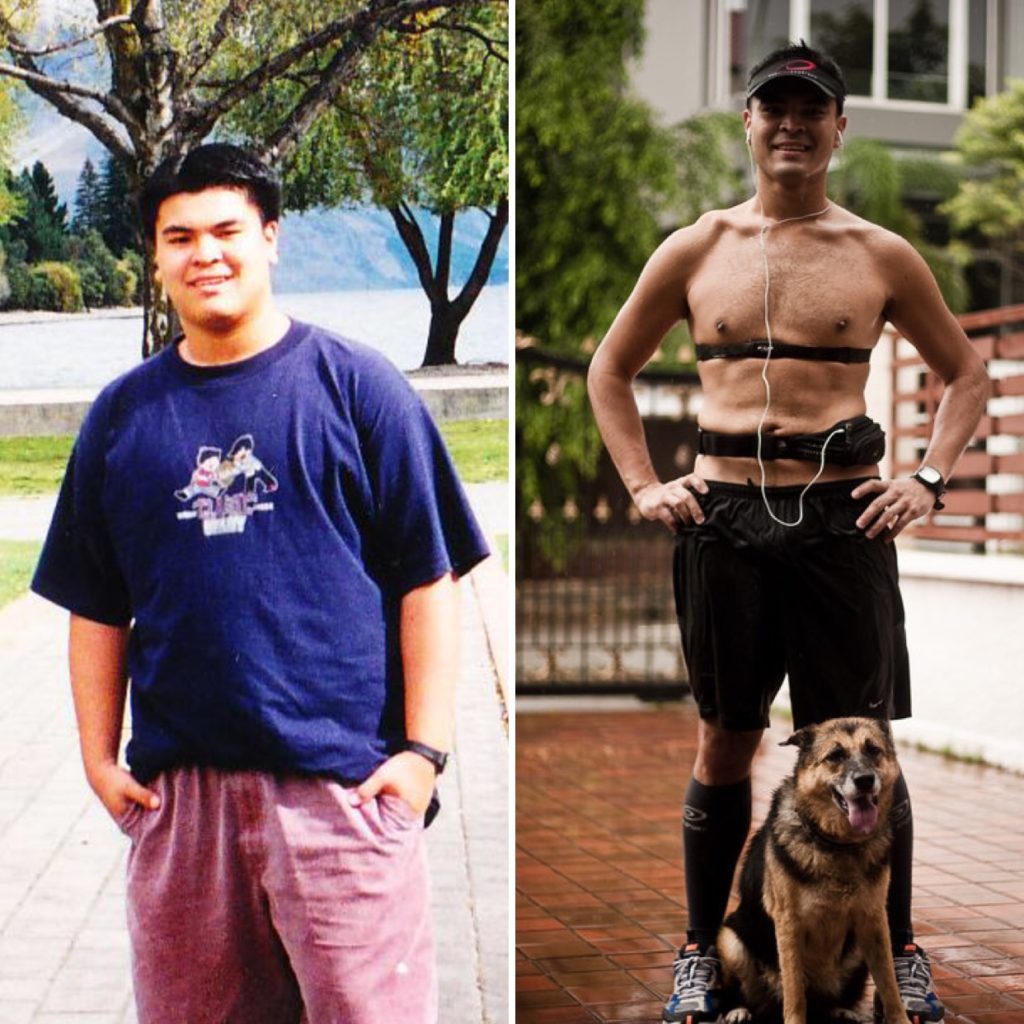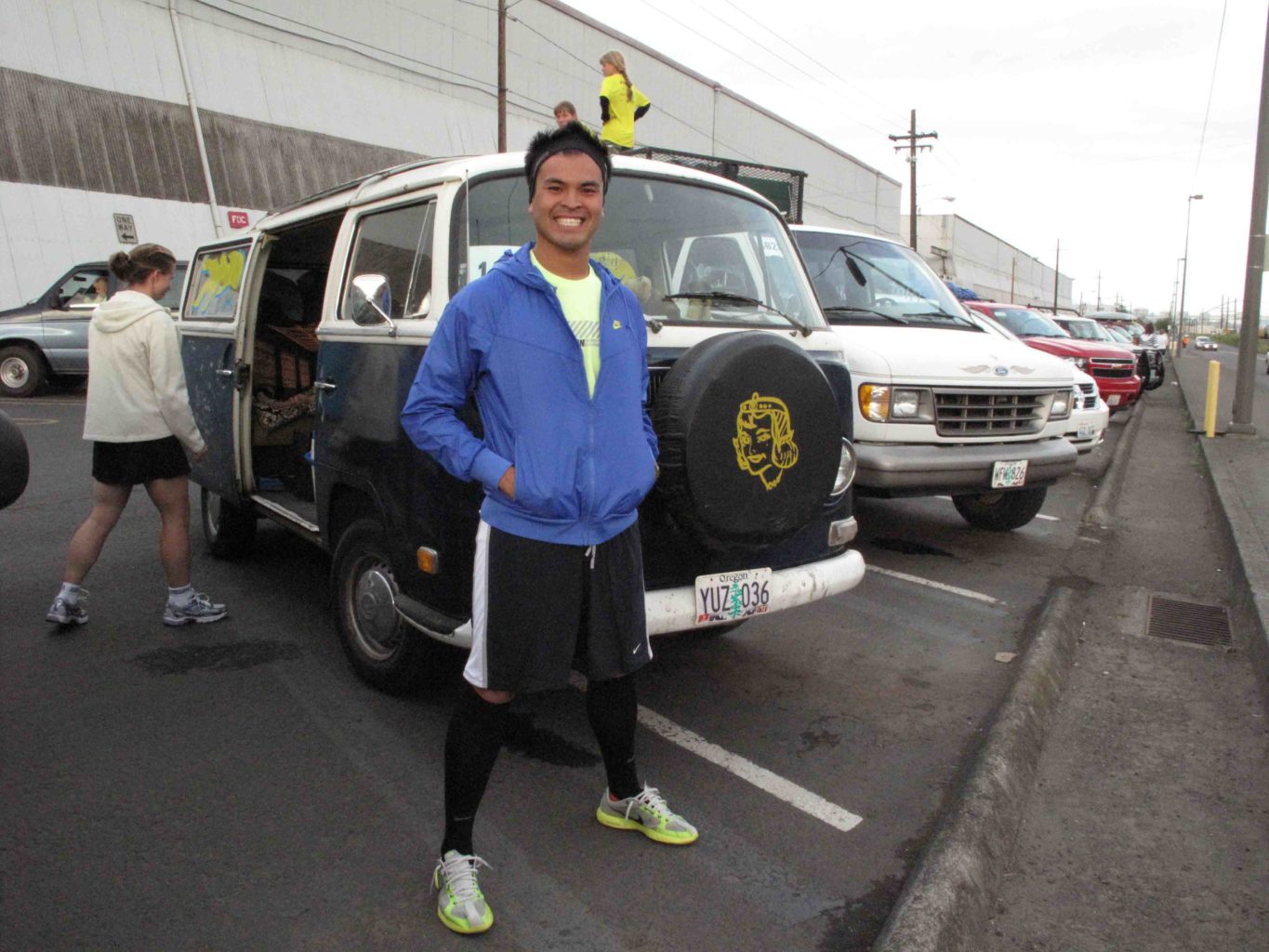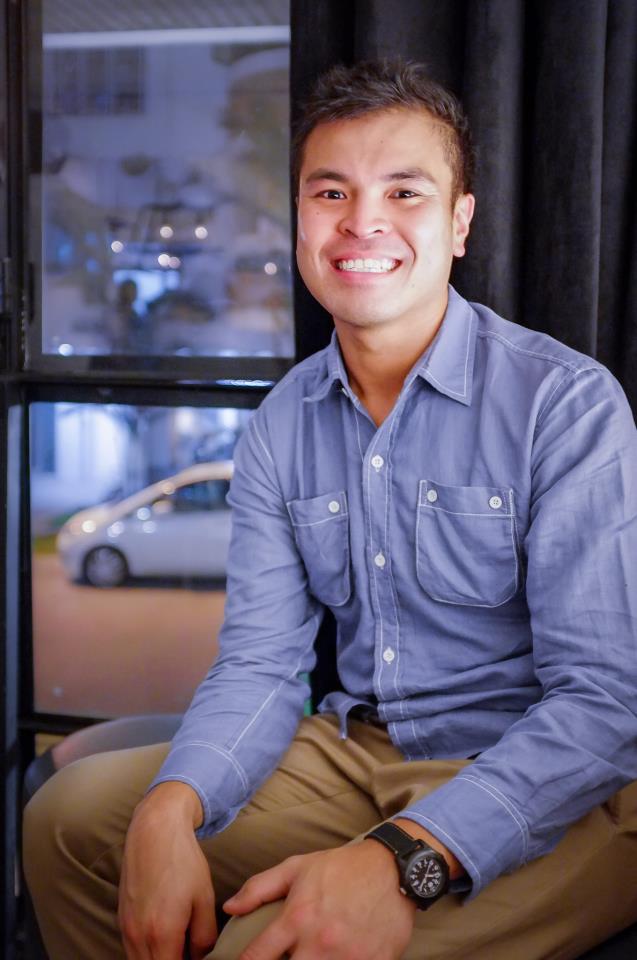
While eating disorders and negative body images are commonly characterised as a woman’s problem, it doesn’t mean men are an exception to these struggles. Instead, men too often have been stigmatised from coming forward about their body image issues, making it hard for them to find help and receive support from others.
Hann Sern Young hopes to change just that, especially since he’s struggled with both extremes over the years, with his highest weight at 125kg whilst playing for the Hong Kong National Rugby team at the age of 17, and his lowest weight at 65kg, just two years later whilst studying in the United States.
Bulking up
Growing up in Hong Kong, Hann Sern’s parents enrolled him in the only British school at the time, as Cantonese was the main language in other schools in Hong Kong. It was in school where Hann Sern picked up his love for rugby and realised he was actually pretty good at it.
Despite his parent’s constant protests, the 35-year-old merchandiser continued to pursue the sport actively and made both the Under-17 and Under-19 team at the tender age of 16. In order to compete at an international level, Hann Sern had to pack on the weight to match the sizes of individuals in prolific teams in the region, such as Japan and Korea.
Here, the 1.75m teenager saw his weight climb to a hefty 125kg. “I always wanted to fit into a pair of jeans like a normal person, but at 125kg, I didn’t have much of a choice,” he joked.
After choosing to defer National Service during the latter part of studies in Hong Kong, he headed straight to the United States to begin his University education.
At that point, Hann Sern had already stopped playing rugby and lost some bulk, but he gained 5kg due to a poor diet whilst studying, coupled with a whole lot of alcohol.
The wake-up call came when his mother mailed him the Individual Physical Proficiency Test (IPPT) requirements and one of the tests included a 2.4km run (six rounds of a standard 400m track).
“After just two rounds, I felt chest pains and that made me realised I wasn’t fit anymore and was worried about my health. It was more fear of my health than anything else,” he remarked.
Obsession
After the minor scare, he vowed to get his health and fitness in check, walking six rounds everyday and eventually running. He then got addicted to running and the weight started to come off. He also started experimenting with his diet, trying things like the Subway or Atkins diet.
“I got a bit obsessive and that’s when the weight started to slide. When you come from a really huge base, the weight sheds very dramatically. At times, I would lose 1.5kg a week. I went from size 40 waist to a 32 in the span of six months,” he recalled.
“I dress pretty preppy so I went from that to looking like I was in a rap group because everything became baggy. I didn’t notice it because you look in your reflection everyday so you don’t notice it until people start to say that I was getting scrawny. I went from a bulky rugby player to a really lean, scrawny runner.”
At one point, Hann Sern was running 12km daily for six days a week and would eat less than 1,000 calories a day. His obsessive and unhealthy behaviour saw him shed an incredible amount of weight to a low of 65kg, but he lost more than just physical weight.
Close to losing it
This entire over-exercising and under-eating regime not only emotionally and physically drained Hann Sern, it also affected the people around him. “I looked gross, almost to a point where my skin didn’t fit the bones beneath. I had mood swings and always got angry at people. I’d starve myself and end up binging, then I would turn to drinking to remove that empty feeling. It was a terrible cycle,” he admitted.
The turning point was at graduation. It suddenly dawned on him when he was looking in the mirror that he was a different person now – and not in a good way.
Long road home
Upon completing his studies in the States, Hann Sern returned to Singapore to serve his National Service (NS) duties. Initially feeling out of place in Singapore, he managed to fit in and turn his life around. He got his weight up to a healthy 80kg and even represented his unit in running.
“I continued my love for running when I came back to Singapore. It was a little awkward at first because I was bigger than the others, but I could run quite well. I had really good times for SOC and my 2.4km run, so eventually as I moved through OCS and Pilot Corp training, running just became part of the routine,” he said. On the personal side, Hann Sern took part in marathons and Ironman triathlons too.

Today, Hann Sern still runs marathons and also teaches spinning in his free time.
“You know, guys want to look and feel good too. They just don’t know how to tell people of their body image struggles because in some ways, it can be frowned upon on for guys,” he commented.
“For those who are struggling, just know that it will get harder before it gets easier and there will be more bad days to come first. There will never be an easy day. It’s important to have fun with the process.
“If you’re struggling with body image but you’re always doing something about it and want to get better, that’s a good thing. The day you stop being concerned with it means you’ve lost that drive. When you have that drive, you’re always trying to get better. So as long as you have that drive, then you’re always in a good place. Keep going!”

We chat more with Hann Sern…
Currently do you still struggle from body image struggles?
A: Once in a while, but I think it’s a function of getting older. You can’t recover as fast. There are things that as you get older – you start to realise you’re not as strong. Once in a while, it relapses. BUT the one thing that helps me along is understanding how your body responses to the mental side of things. Largely, it doesn’t bother me because I know how bad being too thin is, especially if you forced your body in it.
Body image struggles and eating disorders are normally associated with women. Why?
A: I think men don’t know how to vocalise stuff like that. As an Asian person, I think we don’t know how to. In general, wellness is also not high on the priority list. Many people don’t realise they need to do something about health until something happens and hopefully it’s not too late.
Right now, how do you feel about yourself and your body?
A: I feel that even though you get older, you should always look at it like clay. Clay dries up, but it can always be moved and formed. I think of it as progression. I don’t think there’s any perfect physique; as long as you’re progressing, I feel that’s how it should be.
What do you think of Rock The Naked Truth?
A: Rock The Naked Truth offers perspective. If you had to sum it up into one word, it’s honesty. There is a real lack of it, whether it’s in the media or print. The world nowadays is so in your face and people are super impatient about everything – communication, expectation etc. I feel like having a medium like that allows everyone to take a step back and absorb things much easier.
Personally what does body image mean to you?
A: In an ideal world, it would be a reflection of yourself both emotionally and physically. For example a smile shows a person from an emotional and physical standpoint. A smile is always good; there’s nothing bad about it. I think that’s body image to me.